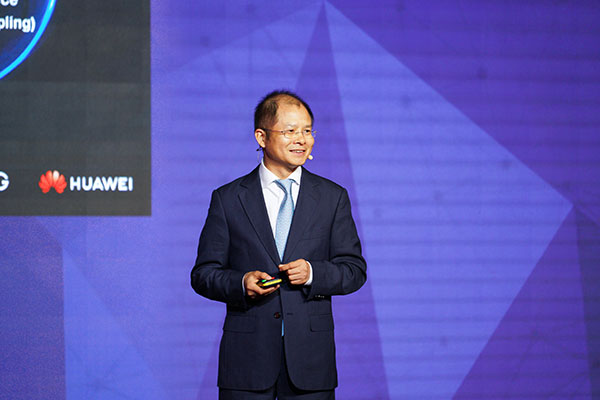Huawei To Focus On ‘Survival’ In 2020

In a New Year’s message to employees, Huawei’s Chairman, Eric Xu, said that the company’s top priority for 2020 would be survival. “Survival will be our first priority,” said Xu in a statement.
He also revealed the company’s annual revenue, which represented a two-digit growth. Huawei recorded an annual revenue of 850 billion yuan, about US$121 billion, which represents approximately an 18 percent rise from the previous year.
He further said that the company’s business is still strong. The company’s executive also mentioned their plans to “go all out” and create their mobile ecosystem that would replace Google’s Mobile Services, a collection of Google’s apps that are often shipped with the official Google-certified Android devices.
Huawei Mobile Service is the name of their alternative. This move, according to Xu, will “ensure that we can keep selling our smartphones in overseas markets”.
Moving Forward…
The company doesn’t expect to be delisted from the so-called Entity List in 2020. They expect to experience slow growth in sales, unlike how they performed in the first half of 2019.
For its telecom business, Huawei does not expect an easy time either. The US government has continued to pressure its allies to bar Huawei from taking part in building 5G.
So far, only two countries – Australia and Japan – have banned Huawei from taking part in building their 5G networks. The UK, which is still undecided at the moment, has also hinted that they may also block the Chinese tech company from taking part in their 5G network.
Recently, Huawei has been welcomed to participate in trials for 5G networks in India.
“It’s going to be a difficult year for us,” said Eric Xu.
“The external environment is becoming more complicated than ever, and downward pressure on the global economy has intensified,” he said.
“In the long term, the US government will continue to suppress the development of leading technology – a challenging environment for Huawei to survive and thrive.”
The Huawei US Ban
Huawei was banned in May by the US, which barred the company, together with dozens of its affiliates, from working with any of its American technology business partners. The ban, according to the US, was because the Chinese tech company poses as a national security threat – allegations that the company has consistently denied.
Later on, towards the end of the year, we have seen some US companies granted temporary licenses to work with Huawei. An honorable mention here is Microsoft, which meant that the Chinese manufacturer could continue shipping its laptops with Windows OS, although they had already begun shipping Linux-powered laptops before.
Follow us on Telegram, Twitter, Facebook or subscribe to our weekly newsletter to ensure you don’t miss out on any future updates.



